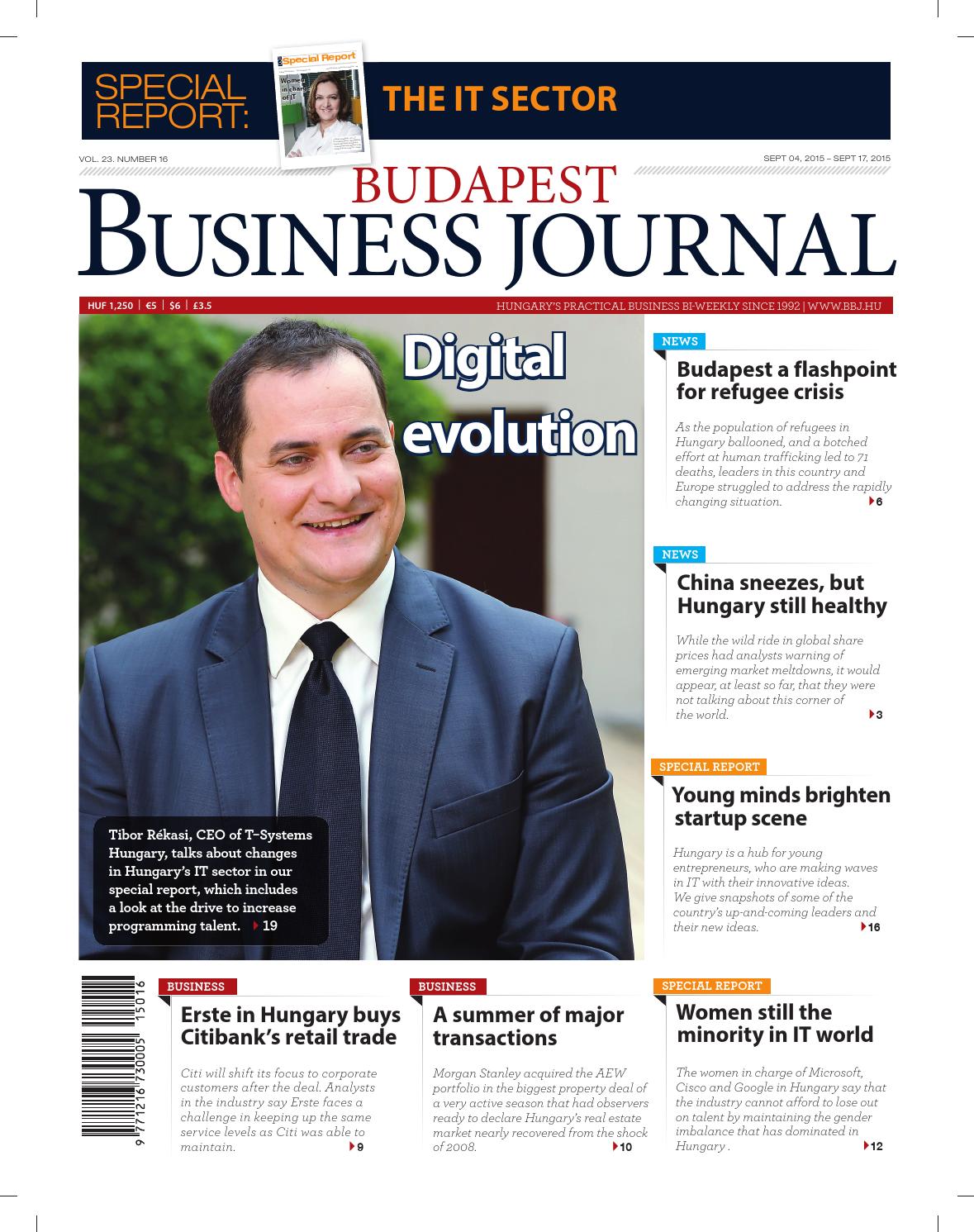Hungarian President Proud Of AmCham’s American Roots & Values
- 9 Jul 2019 7:35 AM
- Budapest Business Journal

BBJ: AmCham is celebrating its 30th anniversary this year. How has the chamber changed since 1989?
Farkas Bársony: Since day one, AmCham’s purpose is to support foreign investment and to build a strong business community. Nonetheless, a lot has changed since ’89.
Back then, many businesses and expats flowed into the country, lots of them American, because they saw tremendous potential in Hungary as we were ushering into a new era with the system change.
It was clear early on that a strong network must be built to share knowledge, promote modern business conduct, develop international business relations and to lay down the groundwork for a more business-friendly legal and tax system.
The chamber was founded to address these needs and as it continued to progress and grow, the services expanded. Today we are in a position where we can focus more on issues integral to a successful future such as digital transformation, education and the labor market.
BBJ: What were the biggest challenges in setting up the chamber?
FB: The transition to a market economy was, of course, very difficult. Hungary lost a huge market with the collapse of the Soviet Union, but we gained a much larger one in the rest of the world. It was crucial to change the mindset of people, to move away from the establishment, to promote new values and to develop business culture.
Lobbying, business networks and representative organizations such as AmCham were foreign territory here, and the lack of language skills had to be considered as well.
BBJ: What have been the biggest AmCham landmarks along the way?
FB: We could probably talk about this all day. The early years were all about growth. The AmCham name had to be established in Hungary and, of course, we needed a wide variety of companies to join the ranks in order to put weight behind the organization, so it could be able to advocate on relevant issues effectively.
During the ’90s, the chamber was fortunate to host several global leaders and highly acclaimed experts including U.S. President Bill Clinton and Microsoft’s Bill Gates.
Our organization was also hit by the financial crisis; two-thirds of our members left basically, but AmCham regrouped and came out stronger than ever.
What is probably more relevant now is that, over the years, the organization has successfully advocated for various beneficial changes such as the Company Act, Public Procurement Act and the game changing 9% corporate income tax.
Five years ago, we revamped our advocacy work by introducing an annual cycle of consultation with our strategic government partners featuring regular state secretary and minister level meetings, new working groups, new flagship events such as the “Business Meets Government Summit” and the “Competitive Education Conference”, and the culmination of a year’s hard work, the annual “Cooperation for a More Competitive Hungary” recommended package.
BBJ: As the American Chamber, you are seen as representing American business values. How well do these resonate in Hungary, and how has that changed?
FB: We are proud of the roots of this organization and the impact its values had on business in Hungary. Without doubt, the arrival of American companies and the developing business relations led to more focus on efficiency, collaboration, transparency and accountability.
While there is a noticeable improvement in entrepreneurship, we still have a lot to learn. AmCham heavily supports this with the “Start Your Business” series. I would also like us Hungarians to be braver, willing to take calculated risks and incorporate the innovative spirit into our DNA.
BBJ: The chamber is much more international than bilateral. What is the mix of nationalities represented, and why do you think non-American countries are drawn to it?
FB: Today we represent 350 companies from 23 nations. One third is Hungarian, one third is American and one third is composed of international businesses. We are fortunate to have a strong and diverse membership so there is plenty of opportunity to learn and work with each other.
It is the ideal place to build connections and promote your brand. Furthermore, AmCham gives you the chance to make a difference, to define and discuss the most pressing challenges impacting your businesses with decision makers.
BBJ: What is the key to being a successful lobbying organization?
FB: Resilience, reliability and a strong foundation. First, we know that change takes time and sometimes we need to wait years until a recommendation gains traction and the right amount of support. Secondly, we established a good working relationship with the government and that is down to building trust and displaying dependability.
AmCham Hungary is known as a solution provider. We do not just raise concerns or ask questions; we are here to utilize the expertise and knowledge of our membership to give answers and to take responsibility.
Our goal is to be an indispensable partner in the mission to make this country more competitive and we can only do that by being open, consistent and constructive. At the end of the day what matters most is the membership itself. We are honored to represent so many powerful and successful companies.
BBJ: How do you think the chamber will evolve over the next few years?
FB: AmCham always reacts and changes according to the needs of the economy and the demand of the membership. Today, the most pressing issues for our members concern education, workforce and digitalization.
I believe these topics will set our agenda for the near future as well, so we do not expect a major change in our organization. Whatever the future may bring, AmCham will be ready to step up and lead in the efforts to make Hungary more competitive.




























LATEST NEWS IN business